INDIA; Around Odisha in 15 days… Day 1 – Arrival by tuk tuk, the sacred cows, tea in the slum & monkeys overhead
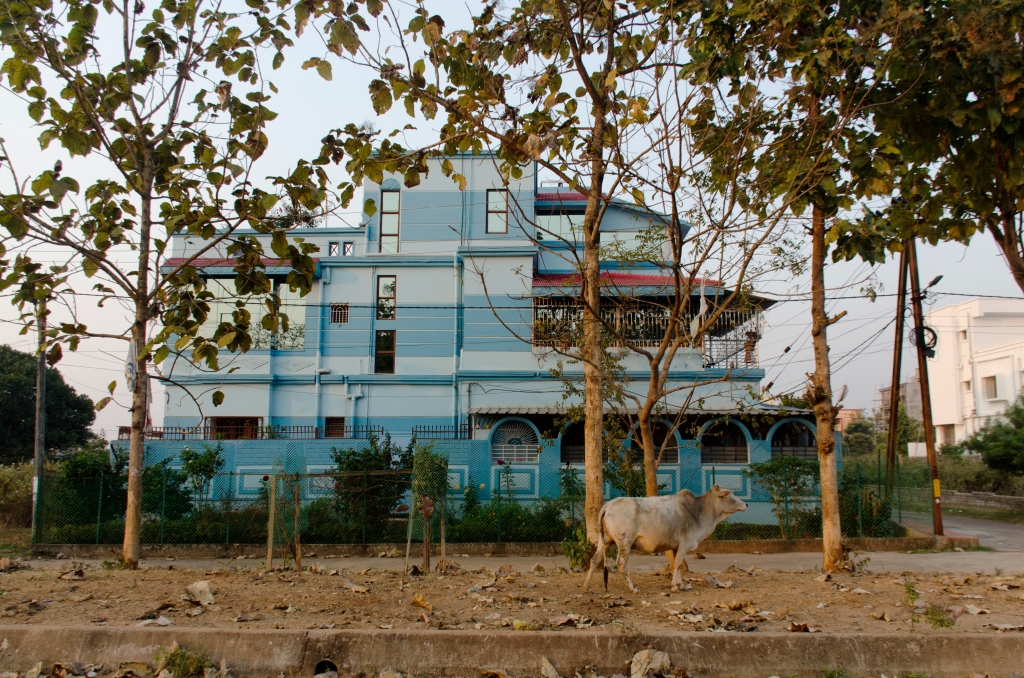
My first experience of Asia begins with India; a place I have always felt a spiritual connection with, and for which I have harboured a desire to visit for as long as I can remember. Unsurprisingly, I have not been disappointed. I feel a slight envy of those people who travelled here in the 60s and 70s, people like my Uncle, who must have been unprepared and overwhelmed in every way, by the stark contrast in culture between India and the UK, which would also have been an even greater gap than today. For my generation, we already have an idea of what awaits us on a visit to this astounding country – social media, photography, film, books, all of these have painted a picture of the way that India impacts on the senses.
However, no book or film can ever prepare you for your first experience of India – mine was riding in a tuk tuk from the city to the suburbs. An onslaught of horns filled my ears, instinctively making me glance around to see the problem. There is no problem – every single car, bike, tuk tuk, beeps its horn as a matter of course. They use the horn in the way we would use indicators – to alert other traffic you are coming up behind, are about to overtake etc. They also use it in the same way we do, to express annoyance, to tell someone to move, to go faster, etc. The multipurpose use of the horn means that there is never a point at which someone is not beeping theirs. Add to this the Indian rules of the road… there are no rules! No seatbelts, no indicating, no hesitating. You drive and others move out of the way, this seems to be the basic concept. With what appeared to be a near miss every split second, I struggled to stop myself from incessant wincing and soon accepted my lack of control and went with it.
Freedom, said my host, you have a lot of freedom here. In the UK there are too many rules. To a degree, I agree with this – the West has almost achieved full evolution of the nanny state. You have to concentrate very hard in the UK not to break the law every 5 minutes. Rules abound: rules, rules, rules. When you come to another country such as this, you realise the joy of freedom from everyday rules. It’s intoxicating not merely because of the novelty, but also because of the simplicity, the weight of fear lifted. It is something we do not see because it is so ingrained in our society, yet I think it contributes significantly to our high levels of anxiety and depression. To live in a constant state of fear as we do, always watched, with someone waiting for us to break the rules. It’s stifling to say the least. You feel that in India, a lifting of the spirit – not merely because it is a spiritual centre (which you instantly feel to your core, too) but from the sense of freedom the society affords its people. The argument against this is obvious, with more rules comes less accidents etc. but the weight of the fear impact on our generation and the next is already beginning to show, with higher levels of depression, anxiety and suicide than ever before as young people feel trapped and overwhelmed by the burden of fear society places on them.
Anyway, I digress. But I digressed because freedom from incessant public restriction is a significantly noticeable aspect of life here. Another is cows. Cows everywhere. EVERYWHERE. You cannot walk for 100 metres without seeing at least one cow wandering around. They don’t belong to anyone, nor do they seem to get looked after by anyone in particular. They fend for themselves and no one takes any notice of them. They are as much a part of life here as rain in England. As a foreigner, this charms me no end, a fact which the Indians find hilarious. Sitting in a house, a cow walks past the door. Walking along, a cow trundles past. I turn in amazement and delight as these noble animals are treated as equals, in stark contrast to our brutal farming and consumption of them in the UK. Although they are mostly ignored here, they would never mistreat them. The Hindu cow is sacred, and it is clear that all animals are respected in this mostly vegetarian country.
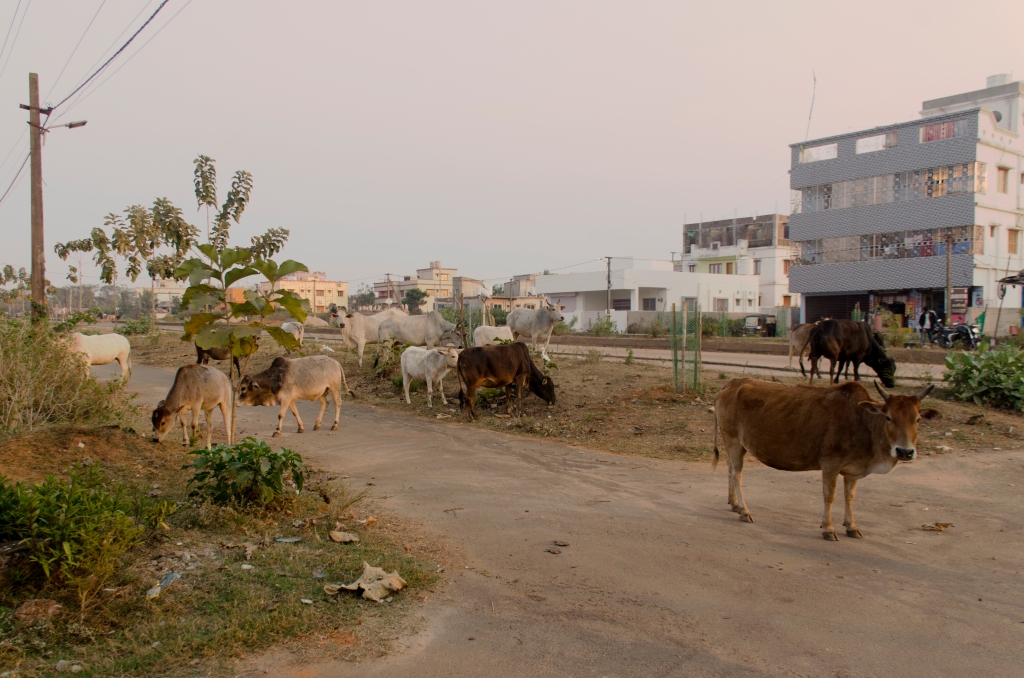
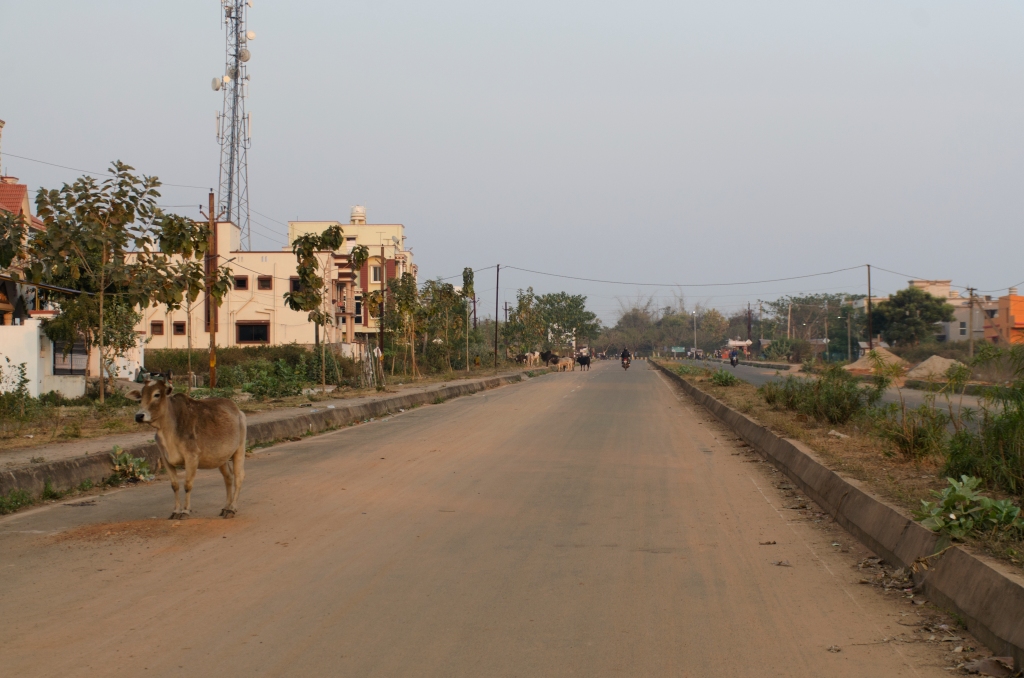
So, I arrived – my host Ashis took me by tuk tuk back to his home and art residence in Bharatpur on the outskirts of the city of Bhubaneswar. The traffic and the cows were my first major introduction to the contrast of life in India to that of where I had arrived from, just outside London. The residency, at Kalanirvana, is held at a beautiful house in a fairly rural area, quiet except for the ongoing sounds of building during the day. Construction here is in full swing, every other house is being built and workers (men, and women in full sari) trek up and down stairs all day long carrying 8 bricks on their heads at a time, or bags full of sand in 28-degree heat. I am in awe. They grin at me as they pass, and I grin back. Namaste I say, and they nod with a grin. I am a novelty here; being particularly fair skinned I stick out like a sore thumb and have had a taste of celebrity status as I am often asked to pose for photos with locals, or encounter those who ask me to take photos of them, and who beam in delight at me as if I am an alien species. I have had very little animosity, perhaps a handful of looks, but these could probably be construed more as a confused frown than hostility. Interestingly, more than a few children, particularly the very young, toddlers, have squirmed away from me in fear. The fear of the other, which they do not yet understand, being too young to have learnt of other cultures by TV and schooling. I found this fascinating, as in the UK, with our now very multicultural society, the vast majority of children will come across other skin colours and facial types regularly from a young age. I do not remember my son ever reacting like that, as he has seen a variety of faces since he could first make out a face at all.
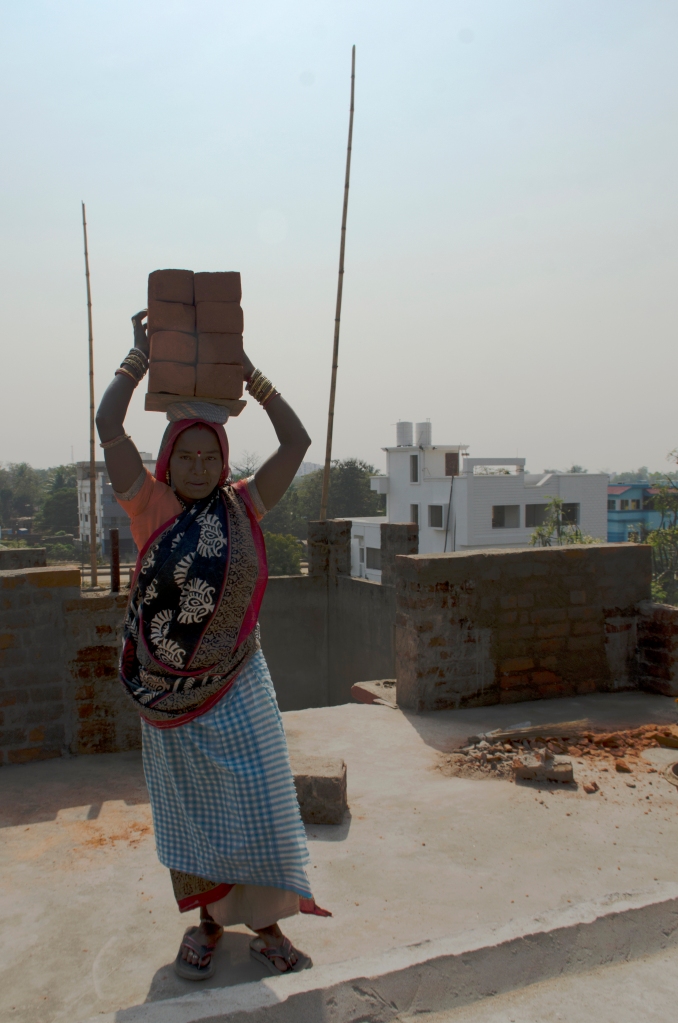
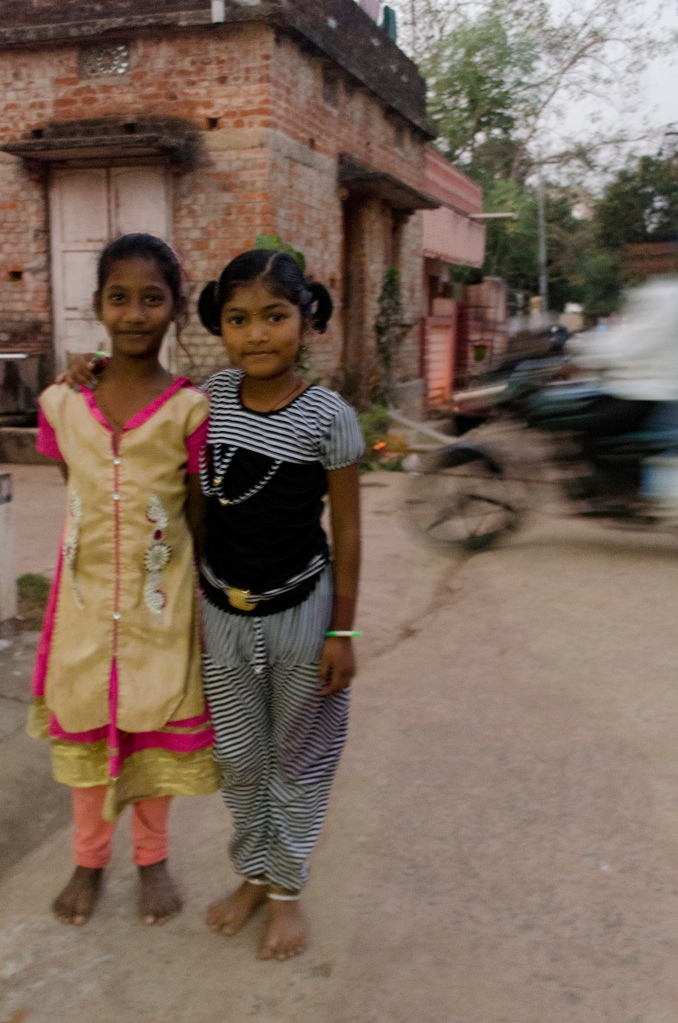
The day I arrived, the previous resident artist Paula, a musical performance artist from New York, was leaving. Luckily, I got to meet her, and even more fortunately, was able to join them on a visit to the local ‘slum’ village to distribute solar lamps she had been given by a company as part of her project whilst here. Before we left, she gifted me a number of beautiful treasures from her trip – a red dupatta, for which she gave me a lesson on the many ways to wear, a pile of collected local handmade paper and a US sci-fi book of short stories to help if the jetlag kept me awake. I was bowled over by this show of generosity for someone she had met only moments before. Her husband Richard, another New Yorker and a high-profile pianist, joined us, despite being rather seriously unwell after some suspect food in Calcutta.
The four of us walked to the village, guided by Ashis, who, being a local, is well known in the area. His father was the first person to build a house in this community and, employed at the time in the power department of the government, had the connections to ensure that roads were built, and electricity installed. More people in turn followed, and the neighbourhood is now busy and thriving. The high-profile nature and longevity of his father in the area means he knows the local people well, which makes for useful security and access to all areas in the local vicinity. On arriving at the ‘slum’, we were greeted by children playing with monkeys in the street. Monkeys which took off sharply when we arrived, aware perhaps of our foreignness, as they took to the high walls to observe us from above. Monkeys in the wild is a sight I have never seen, and a thrill which infuses the soul with happiness.
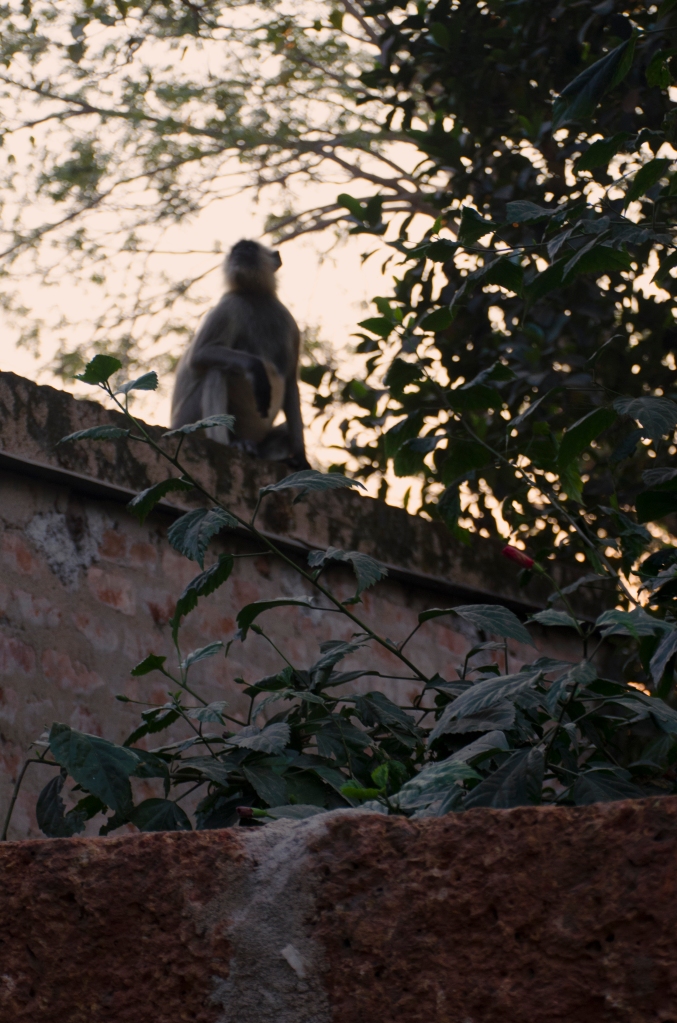
We were invited into the house of Laxmi and took off our shoes to enter – this is standard practice here, in houses always, and often in shops too, shoes off and left outside. It is a seemingly small thing, but yet another practice which stops me short in my own automatic behaviour, to challenge my views of how society works. Although a respectful and cordial social norm, an equivalent in England is not at all practical due to the weather – in minus 5-degrees who wants to be removing shoes and socks outside every time they go in and out of somewhere?!
Entering Laxmi’s house, we were greeted with delighted smiles from the adults and suspicious frowns from the beautiful wide-eyed children, which made me grin at them even more. Paula presented them with her gift of the solar lamp and explained to me that when the electricity goes off in the area (which is a regular occurrence) the slum is without power. When it is dark, that means the teenagers cannot study their schoolwork, no one can cook or do work around the house, and any job which needs to be seen to be completed, is unachievable. The solar lamp will make a huge difference to the practicality of their household. We were offered beautifully small, delicate cups of delicious sweet tea, which I managed to drink despite feeling rather sick from jetlag, having only arrived that morning. We then visited a neighbouring house and were offered more tea and snacks. I ate as much as I could, so as not to offend, and enjoyed the exquisite tastiness of a local banana – a third of the size of the ones we get in the UK, packed with ten times the flavour.
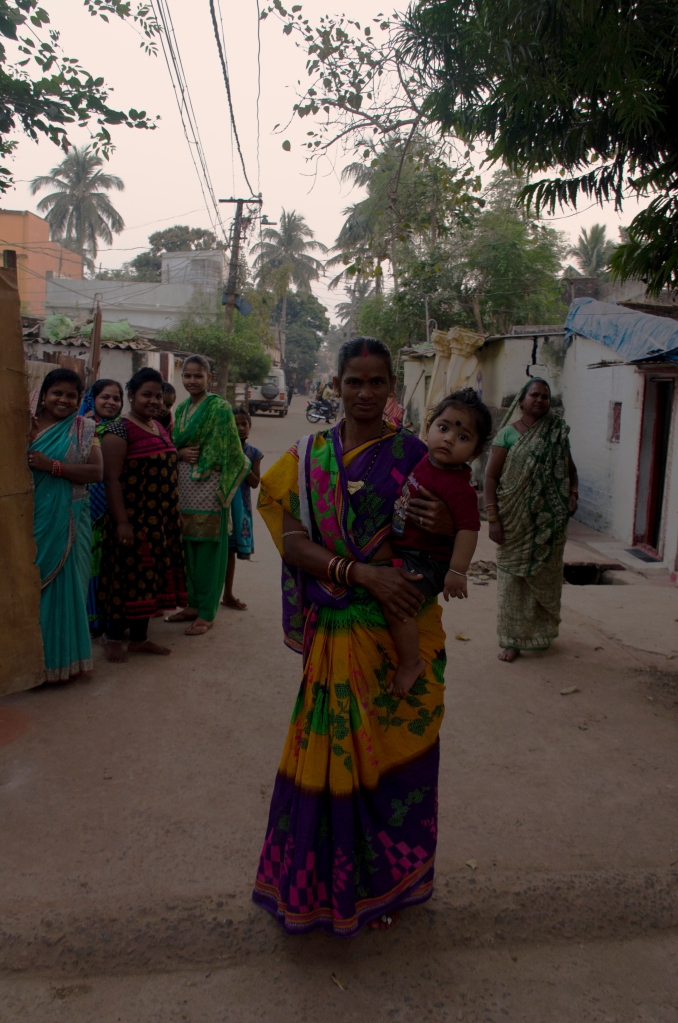
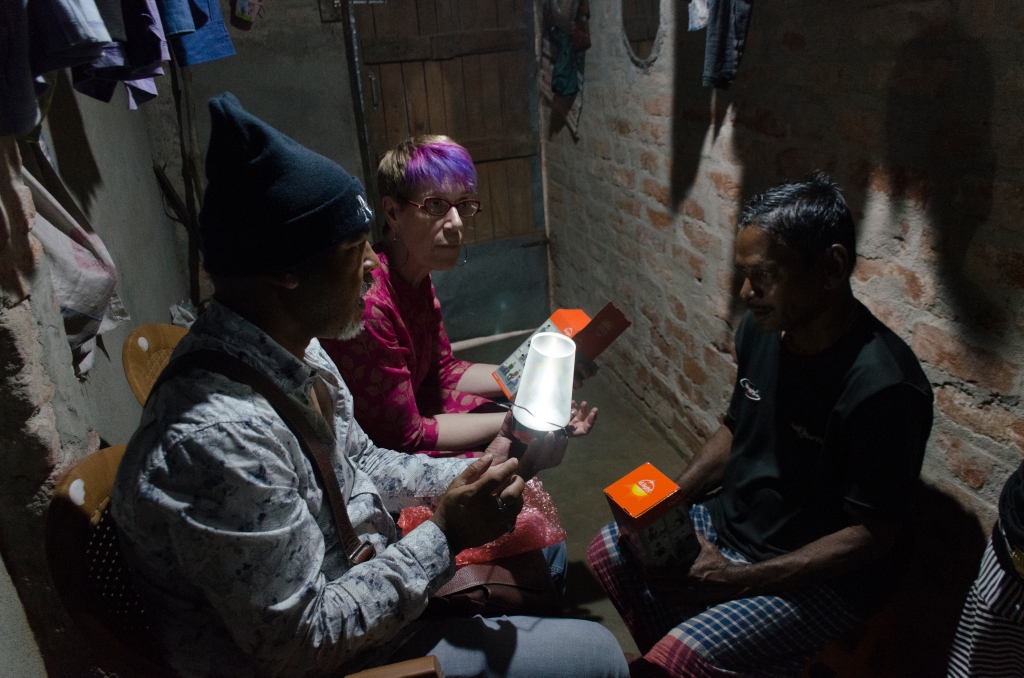
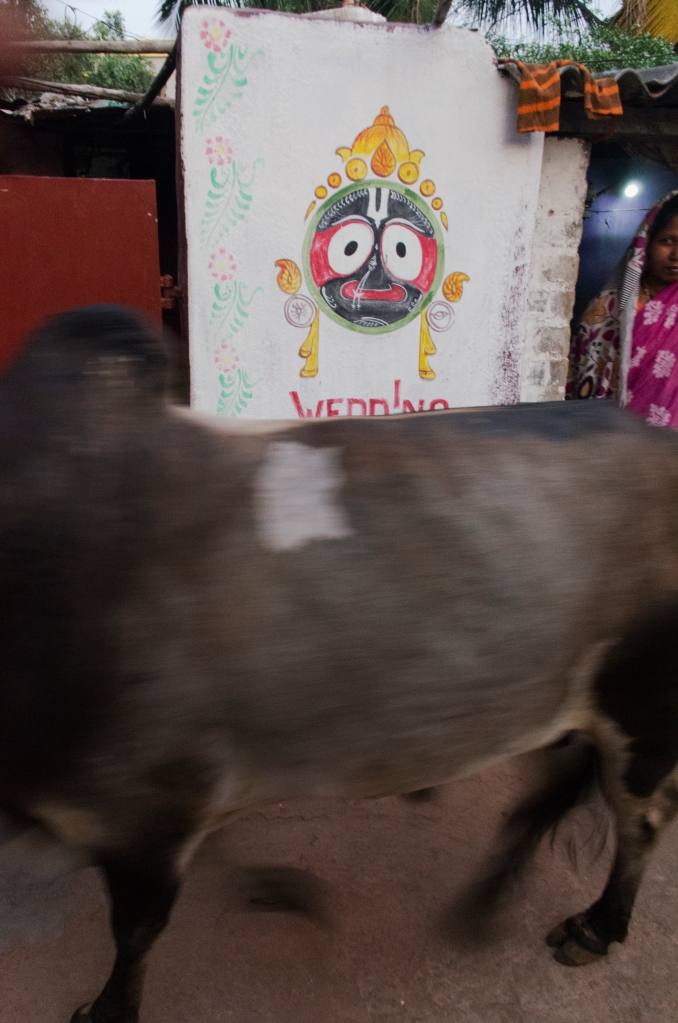
As we left, the sound of drums and chanting filled the air. That’s the Bajan, Ashis said, come, I’ll show you. We walked through the streets to a small temple, where a machinated drum played a fast, repetitive beat as offerings were made to Shiva. Ashis pointed out that every house has a small altar at the front, no matter the status of its owner, where a candle is lit at dusk each night and communal thanks and prayers are given to Shiva and other Hindu gods. The beat of the drum was intoxicating and hypnotic, and I learnt that the Bajan is a daily occurrence, a form of public call to prayer.
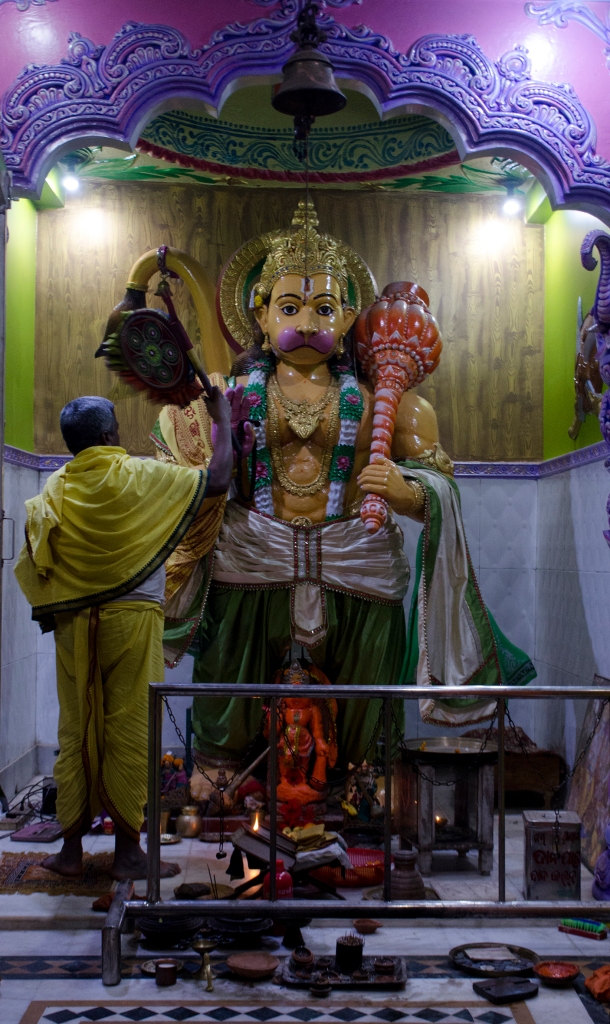
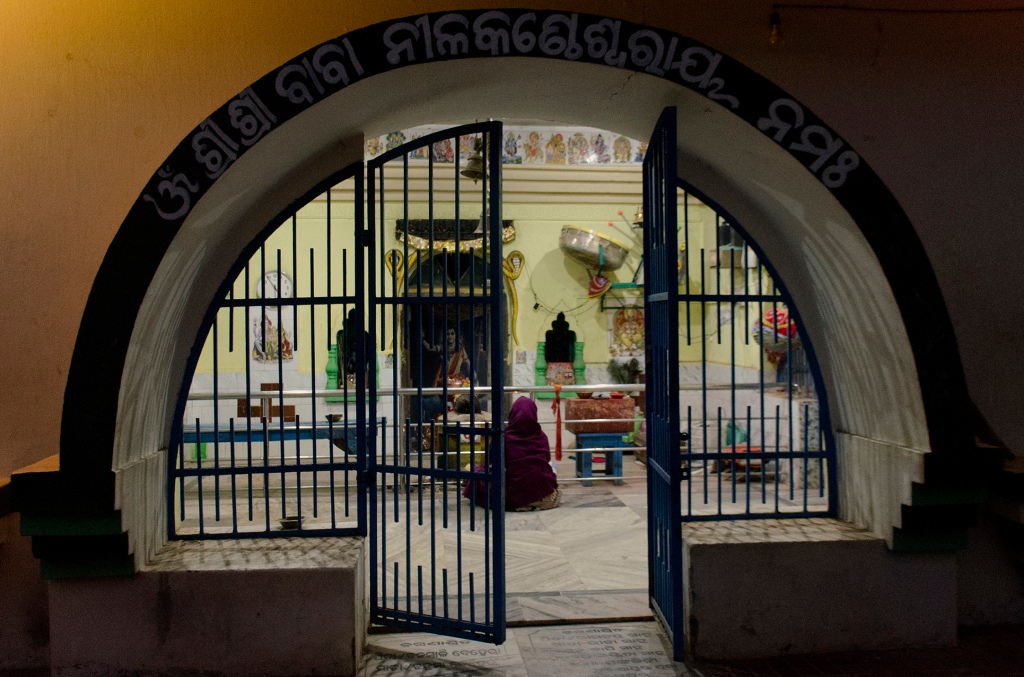
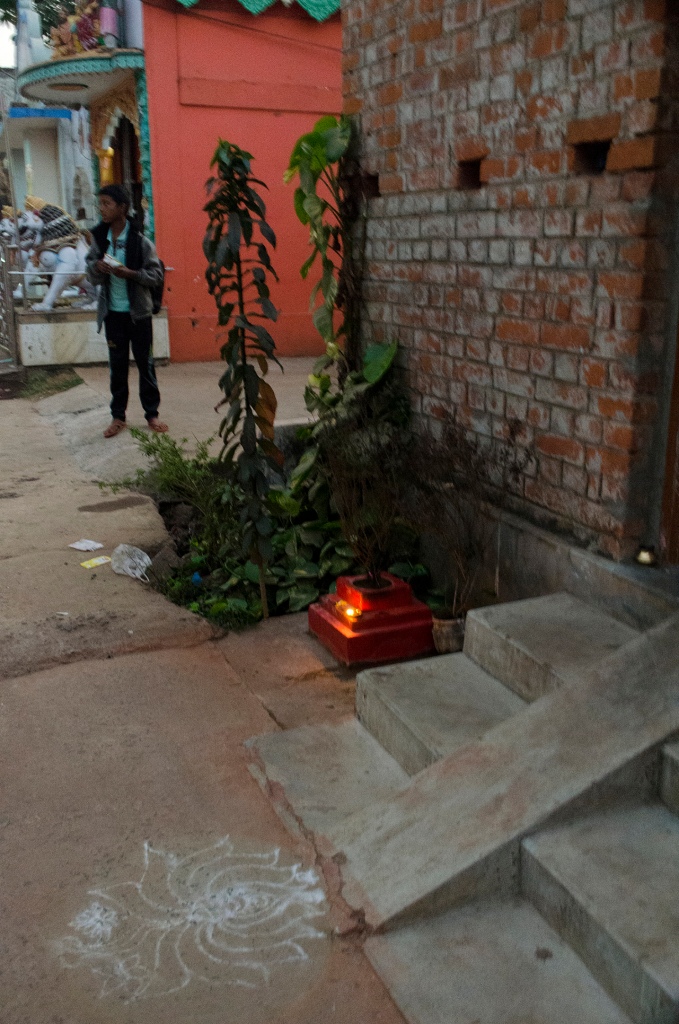
After an overwhelming first day, my first impressions of India are nothing but positive. As I always expected, this place speaks to my soul and feels as natural to me as if it were home. It is a place of acceptance, of freedom; of simplicity but enthusiasm and drive, of overpowering colour and sound and smell. It’s everything you think it will be and much, much, more. I can’t wait for tomorrow….
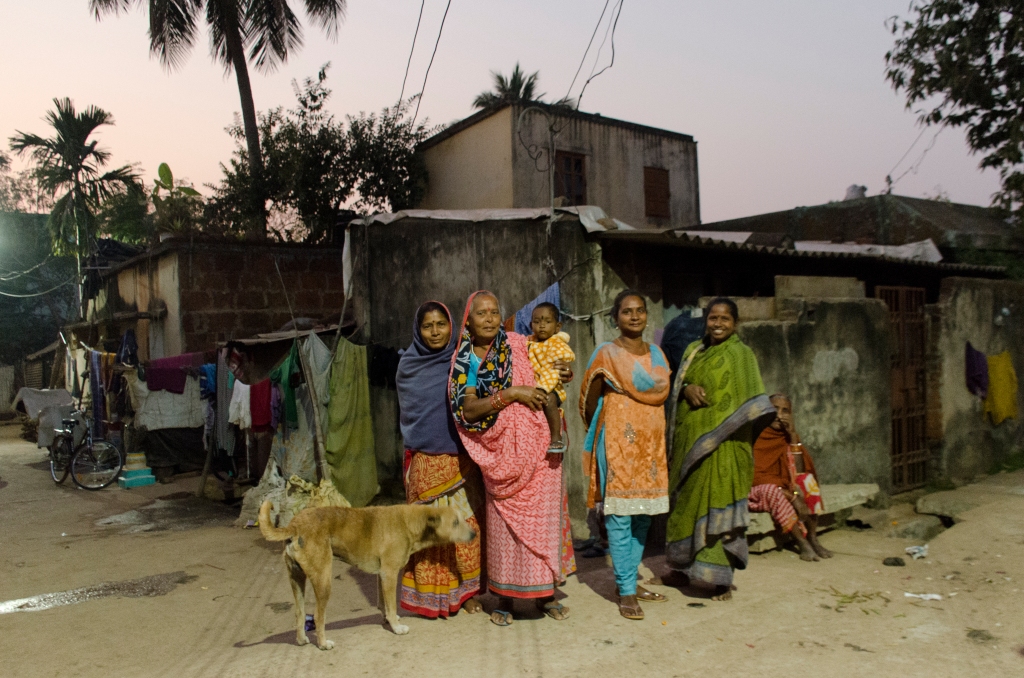

Wonderful post, Kate! I love your fresh views and full-on appreciation for All you are experiencing.
Thank you Aliza! I’m trying to get more days written, but there’s so much to tell it’s not a small task, ha ha. I will be very sad to leave India, and am already planning my next trip back. What a place. Enjoy your continued travels!
I am constantly behind on my blog, so I know exactly how you feel. You want to live, and you want to write, too. How to find the time?
I am sure you will come back. Stay in touch, perhaps we’ll end up in the same location.